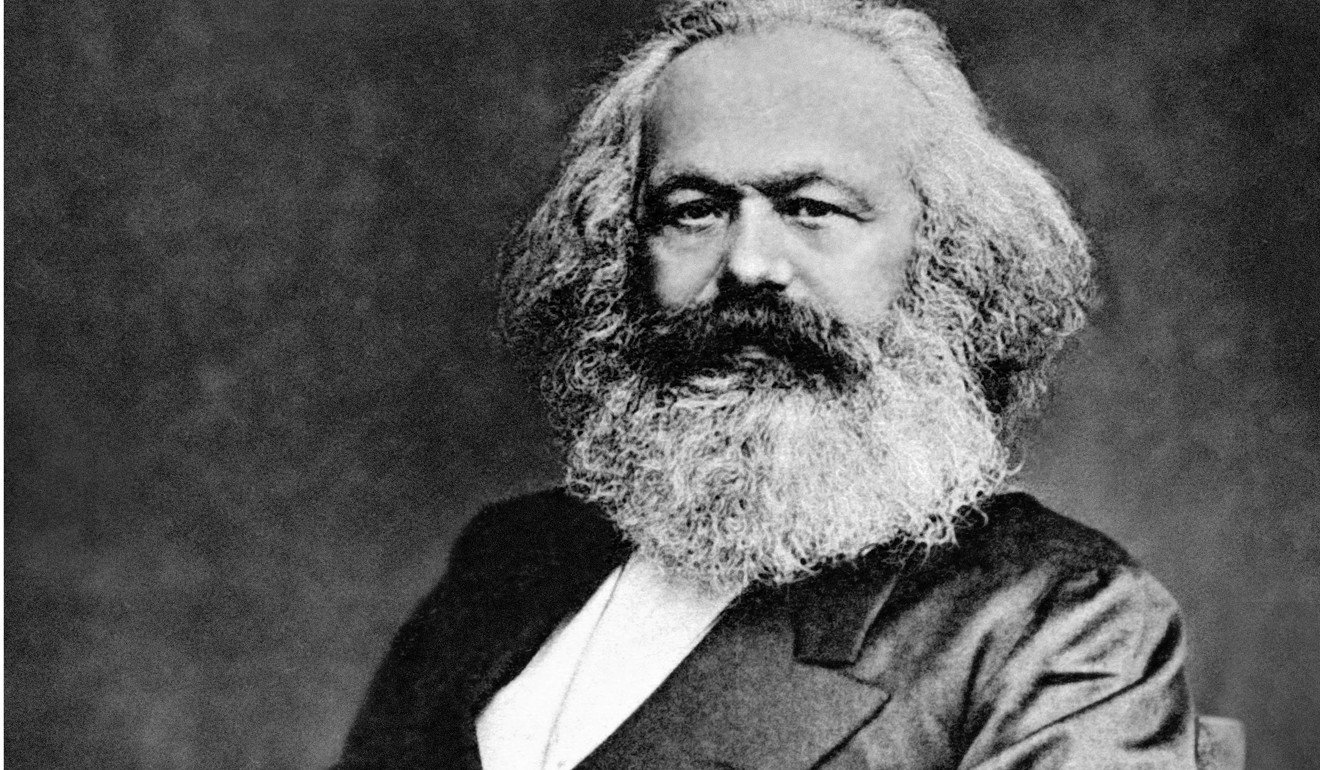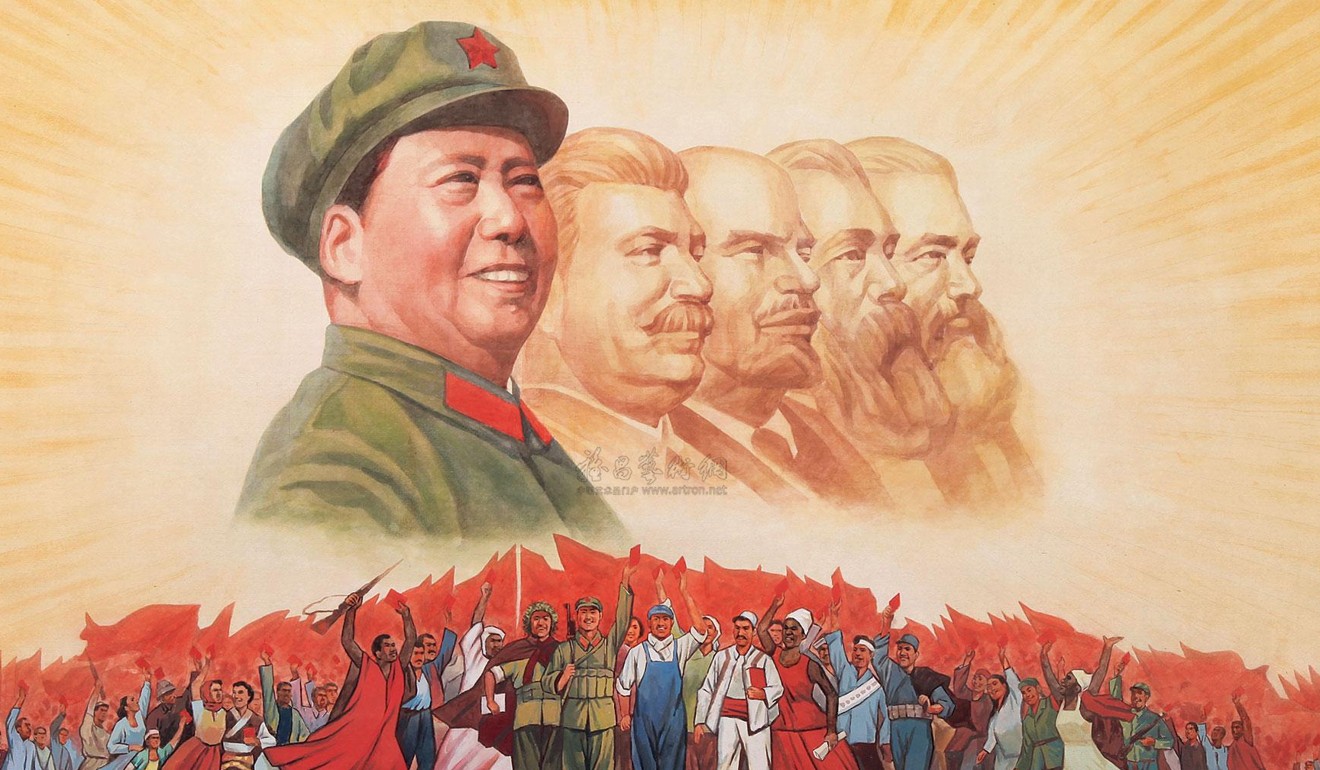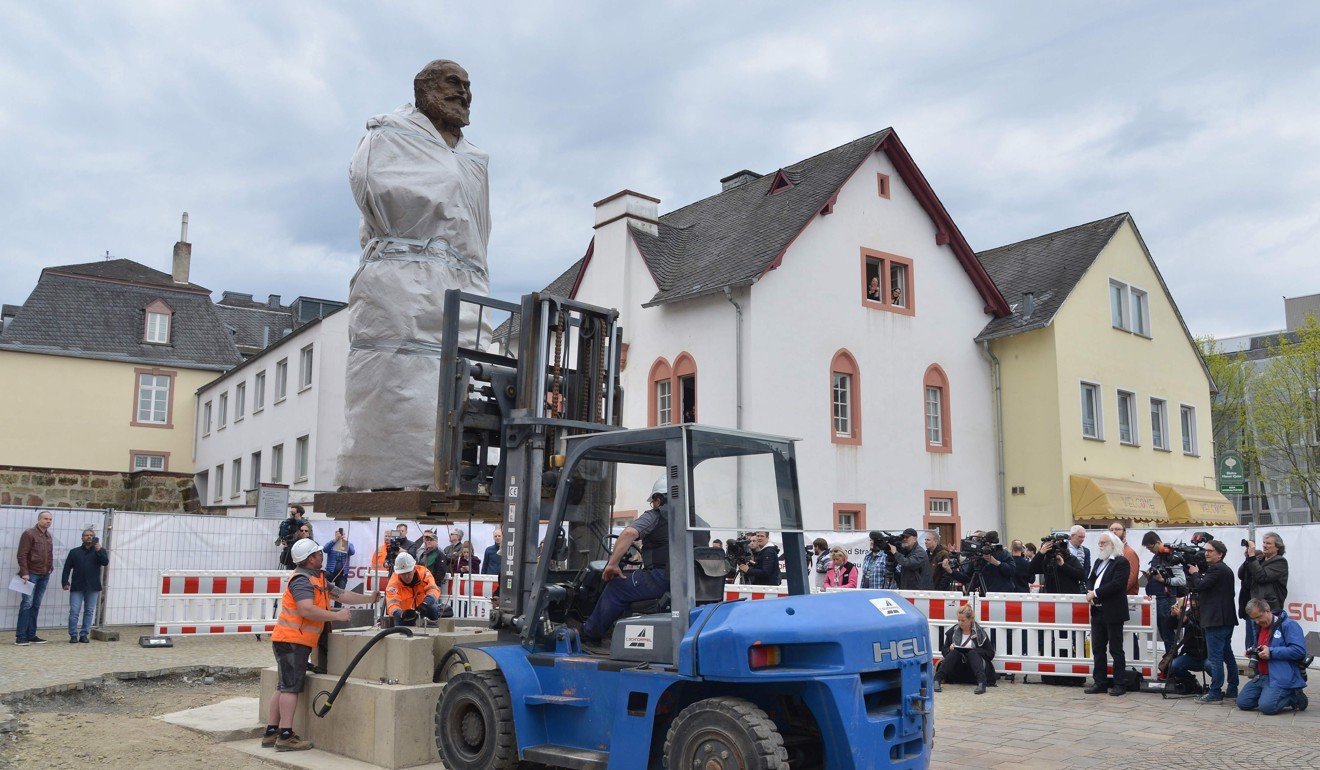
A new class struggle: Chinese party members get back to Communist Manifesto basics
A spectre is haunting party members who only pay lip service to communist ideology as Xi Jinping orders extra Marxist study sessions

First it was Communist Party discipline, then it was President Xi Jinping’s speeches and policies. Now party members across China will soon have another subject added to their already taxing political-study sessions – the Communist Manifesto.
Last week, Xi convened a Politburo study session to celebrate the tract by Karl Marx and Friedrich Engels, which portends the collapse of capitalism and the eventual triumph of socialism.
Studying the work serves the purpose of “strengthening faith in Marxism” and “enhancing the party’s ability to use Marxist principles to solve the problems facing contemporary China,” Xi told members of the party’s ruling body.
But it was not only the country’s 25 most powerful men and woman who needed to brush up their knowledge of the 170-year-old pamphlet.
At the meeting, Xi also ordered “the broad masses of party members, cadres and especially senior cadres to study well and apply well”.

The study session, which was played up by state media, is Xi’s latest attempt to restore the shaky – if not long-lost – faith in Marxism and communism in the 90 million members of the world’s largest political party.
It also echoes with his call for greater self-confidence in the country’s chosen path, theory, system, and culture – known as the “four confidences” – especially amid wariness at home and abroad that China is going backwards, with concerns about stalled liberal reforms for a more open society, Xi’s concentration of power, the scrapping of presidential term limits and the fusion of the party with the state.
In China, Marxism is enshrined as a “guiding ideology” in the constitutions of both the party and the state.
In universities, an “introduction to the basic principles of Marxism” is a mandatory course all students must pass to graduate. Most universities also have a school dedicated to Marxist teachings.
But beyond paying lip service and cramming for exams, not many party members – especially among the younger generation – still believe in communist orthodoxy.
The battle smoke of the communist revolution has long dispersed in the wind. The revolutionary zeal for collectivisation and class struggle under Mao’s tumultuous reign has faded into memory.
Instead, the economic boom following the country’s reform and opening up in the 1980s has given rise to an increasingly affluent and materialistic society, millions of entrepreneurs and hundreds of billionaires, along with a yawning wealth gap and high levels of inequality.

The economic opening also introduced and popularised ideas from beyond the communist ideological pantheon, such as liberalism, constitutionalism, and democracy.
Chen Xi, head of the party’s Organisation Department which oversees personnel decisions, lamented in November that some officials had lost faith in communism and considered it an “entirely unreal mirage”.
“Some don’t believe in Marx and Lenin but believe in ghosts and gods,” he wrote in party mouthpiece People’s Daily. Some officials, he went on to complain, had lost faith in socialism and instead looked to Western concepts of the separation of power and multi-party systems as their ideal.
The loss of faith, along with rampant corruption, is seen as a danger that threatens the party’s own survival and a wrong that Xi is determined to right – by harking back to its Marxist roots.
“Marxism is the fundamental guiding ideology of our party and country. If we deviate from or abandon Marxism, our party will lose its soul and direction,” he sternly warned members of the party as it celebrated its 95th founding anniversary in 2016.
Since coming to power in late 2012, Xi has launched an unprecedented anti-corruption crusade to clean the party of extravagance, graft, dissent and disloyalty. Coupled with the sweeping tightening of discipline is a shoring up of party ideology, with members and officials urged to “stay true to the founding mission” and return to the ideological purity of its earlier days.
Universities were ordered to steer clear of topics including universal values, civil rights and judicial independence, and to beef up their Marxist teaching.
Party cadres were hit by waves of mandatory political-study sessions centring on party rules, Xi’s speeches and the “spirit” of the central leadership’s latest meetings.
With the Politburo taking the lead in studying the Communist Manifesto, more junior members of the party will be expected to soon follow suit and immerse themselves in Marxist classics.
Already, the party’s top training ground for up-and-coming officials, the Central Party School, has put together a collection of 16 introductory Marxist books as recommended reading for cadres, according to a post on its social media account on Wednesday.
Currently, the Communist Manifesto is more of symbol than a road map for the party. Three party members told the South China Morning Post that they did not even need to study the text when they joined the party; others said they did but it was mainly to understand its historical significance and theoretical value, rather than its actual content.
“Scholars who study Marxism would have some understanding of the manifesto, but for sure the majority of party members would not even have read it,” said Deng Yuwen, a former deputy editor of a Central Party School newspaper.
“The Politburo study session could set off a new wave of reviewing Marxist classics at the local and grass-roots level – or at least something that has that appearance.”
At Monday's study session, Xi hailed the party as “a faithful successor to the spirit of the Communist Manifesto”.
But the pamphlet, which argued that “communists everywhere support every revolutionary movement against the existing social and political order of things”, could serve as a reminder of just how un-communist the country has become, according to some analysts.
“If Chinese people actually learned Marxist concepts seriously, then it would become clear to all that China today has nothing to do with Marxism,” said Sean Kenji Starrs, an assistant professor of international studies at City University of Hong Kong.
“Beijing now has more billionaires than any other city in the world, and Shenzhen rivals Silicon Valley in venture capital and private start-ups. And one can hardly argue that workers in the sprawling sweatshops of southern and coastal China have any control over the means of production.
Often workers don’t even have the capacity to collectively bargain and go on strike against their capitalist owners,” he said.
In China, the sole lawful union allowed to exist is the government-controlled All-China Federation of Trade Unions, a nationwide bureaucracy of offices.
But it is widely seen as window-dressing by rights advocates, who say it prizes maintaining stability over defending workers’ rights and interests.
Nevertheless, the party sees itself as the rightful successor to earlier Marxists – and one that helps the ideology keep up with the times. The political theories of Chinese leaders – ranging from “Mao Zedong Thought” and “Deng Xiaoping Theory” to the latest “Xi Jinping Thought on Socialism with Chinese Characteristics for a New Era” – are celebrated as the fruits of the “sinicisation of Marxism”, a term first coined by Mao in 1938.
Xi, who has shown greater enthusiasm for communist orthodoxy than his immediate predecessors, has repeatedly called on academics and party ideologues to focus equally on absorbing Marxist classics and adapting the theory to contemporary conditions to form a “contemporary Chinese Marxism”.
At another Politburo study session last September, Xi said party members could also study “contemporary capitalism, its essence and patterns”, but warned that they should never deviate from Marxism, whose tenets, he said, remained true despite the changing times and evolving society.

But Starrs said the party’s interpretation of Marxism had strayed too far from its original meaning.
“Xi almost never uses the core concepts of Marxism, from proletariat and bourgeoisie, modes of production, wage labour, capitalist exploitation, capitalist imperialism, [to] most importantly class struggle between the capitalist and working classes,” Starrs said.
“In fact, I would argue that China today is one of the most anti-Marxist and anti-socialist states on the planet … The fact that workers’ rights are better protected in the capitalist West than in China today shows just how intellectually and morally bankrupt Xi's version of Marxism is.”
The Politburo’s high-profile celebration of the Communist Manifesto also came two weeks before the 200th anniversary of Marx’s birth.
China has already held numerous activities to commemorate his birth, including sending a three-tonne bronze statue of Marx to his birthplace, the western German city of Trier, as a gift.